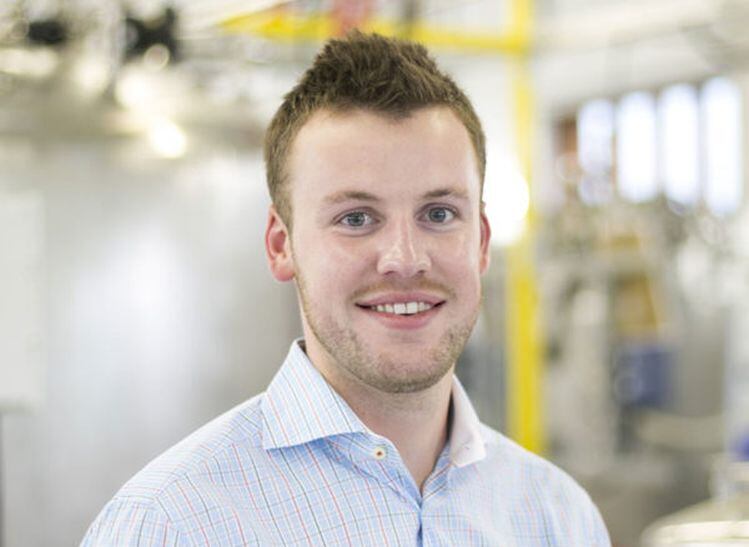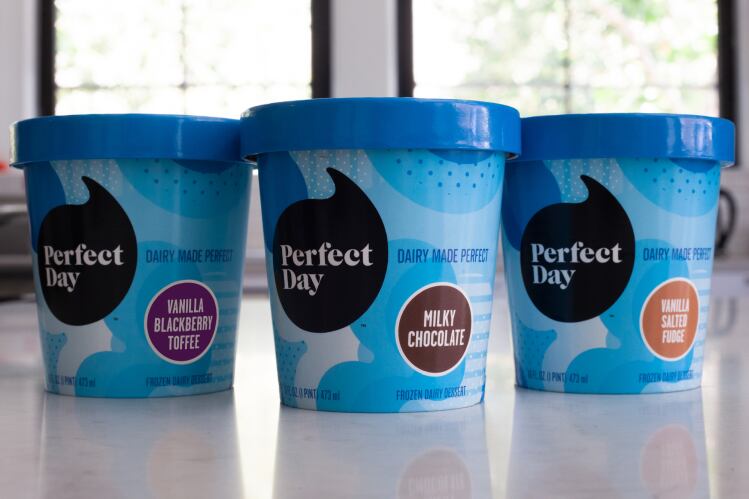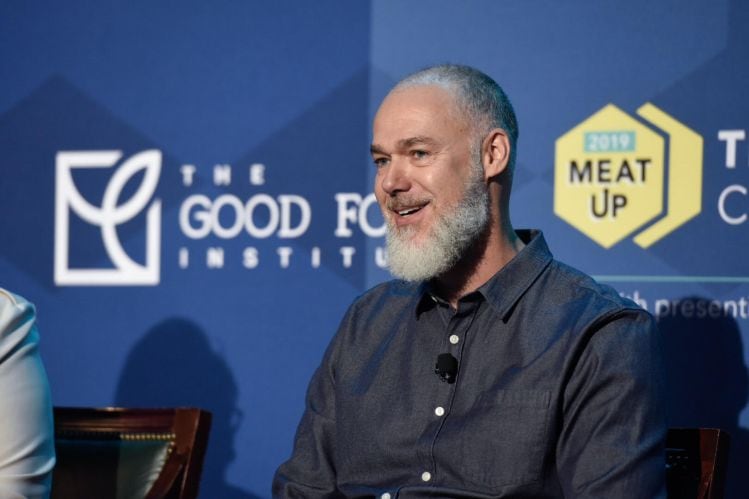Most companies in the emerging microbial fermentation space use synthetic biology to write DNA sequences that can be inserted into microorganisms to ‘instruct’ them to produce target molecules, or they stress an organism to make it grow a single high-value component (leaving the rest of the biomass as waste).
By contrast, Ontario, Canada-based Noblegen has been able to coax Euglena gracilis – “a protist that could also be classified as an algae” – into producing everything from cost-effective palm oil replacements and beta-glucan to complete proteins that deliver the nutrition and functionality of animal protein, in a single fermentation, without using genetic engineering, founder Adam Noble told FoodNavigator-USA.
Facilitated expression
So what is ‘facilitated expression’?

“It’s a proprietary process but it’s primarily focused on speaking the language of euglena and then acting on whatever its needs and wants are at a given period of time to drive its metabolism to the end point we desire, so that could be by altering feedstocks, environmental conditions, and many other factors,” said Noble.
“We’re also forming some very exciting partnerships around advancing that technology and automating it."
He added: “People have never been able to do what we’ve been able to do in our production process without genetic modification, and over this year we’ve been aggressively filing patents to lock down the core elements of our process down to the food applications, so we have a very broad IP protection strategy.”
Gearing up for an October launch
Asked what food and beverage applications held the most promise for the proteins, he said: “We’re gearing up for the big launch of our platform and our consumer [b2b ingredient] brand in October when we can share more about applications, but I can say that the most exciting opportunities are in animal analogs, so meat, eggs and dairy.
"It’s very very exciting from an efficiency standpoint. The scalability, the low cost, the nutritional strength of the products… it’s something the market has never been seen before. We can go head to head with some of the largest commodities that we are working to replace.”
‘It has the metabolic capacity of both animals and plants’
The key appeal of Euglena gracilis is that it has the metabolic capacity of both animals and plants, and it can produce proteins that are similar from a nutrition and functionality standpoint to animal proteins, although they are "not identical from a peptide sequence standpoint,” he explained.
“What’s important to our commercialization partners is that the food industry and certification bodies consider it as a plant-based vegan source of ingredients… a non-animal source.
“It’s a kind of hybrid between a yeast and an algae. It doesn’t have a cell wall like a plant and it can grow without light like an animal. It’s unique.”
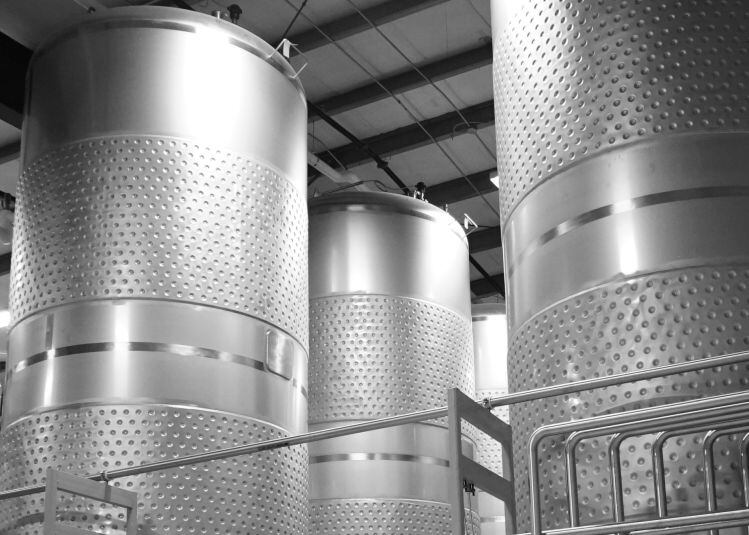
Noblegen was founded in 2013 (when it went by the name Noble Tech) by Adam Noble, the highest awarded youth scientist in Canadian history, who was still in high school when he and his science partner discovered that a single-celled micro-organism called Euglena can be ‘tricked’ into absorbing nanosilver and other pollutants from freshwater. The discovery helped the pair win a Canada-Wide Science Fair gold medal and a Manning Young Canadian Innovation Award. The following year, Noble created a prototype Euglena-based wastewater treatment system that recovers nanosilver for reuse
A complete protein from a Non GMO, vegan source
While other players such as TerraVia (now owned by Corbion) have had limited success with algae protein ingredients, Noblegen’s proposition is very different, he claimed.
“We need a lot of options, but usually these algal platforms are one trick ponies, so they are designed to do one thing well, but the all-in package [that Noblegen offers – producing protein, carbs and fats in a single fermentation] is not there.
“[With other algae ingredients] you also have to break down the cell wall to get to the protein [whereas Euglena gracilis just has a thin membrane called a pellicle and Noblegen can harvest the proteins, carbs and fats without using harsh processing techniques or chemicals], plus they have higher costs of manufacturing, low scalability, very specific feedstocks [whereas Noblegen can use a wide variety of food grade feedstocks from co-products of established food production processes].
“The bottom line is that our protein is also dramatically superior as it’s nutritionally complete," he said. "To have a complete protein from a Non GMO source that’s certified vegan but can mimic animal protein is really the holy grail in the food industry right now.”
Noblegen recently raised $25m CAD in a Series B, and is now using the cash to hire more staff, scale up production capacity at a facility in Peterborough, Ontario (just outside of Toronto), and form commercial partnerships to take its products to market.
As the company expands, said Noble, “We’re open to partnerships on manufacturing, whether it’s working with co-manufacturers, partnering, leasing, and in terms of the commercial strategy we’re working with early adopters and large CPGs as well so it’s quite exciting.”
Regulatory status and labeling
From a regulatory perspective, Noblegen had been advised that its proteins could be listed on pack as “something like ‘protein concentrate (Euglena)’ or ‘protein concentrate (algae),’” added Noble, who said the company is preparing GRAS determinations for all of its ingredients and planned to submit these determinations to the FDA.
“There has a been a wide history of use with Euglena primarily in the Asian markets via nutrition supplements, but there have been many studies done on the toxicology and allergenicity of the products and a lot of the work has been done by ourselves as well so these products are made up of amino acids and peptides that are very similar to what we’d usually be eating.”
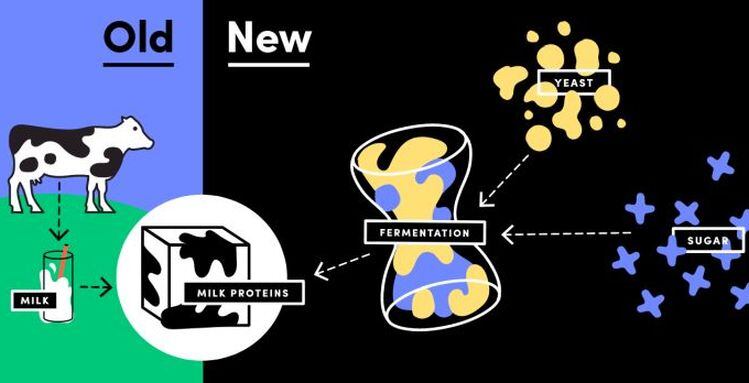
“By 2030, the US dairy and cattle industry will have collapsed,” as ‘precision fermentation’ – producing animal proteins more efficiently via microbes – disrupts food production as we know it, predicts think tank RethinkX, which critics argue is living in “a vegan fantasyland.”

